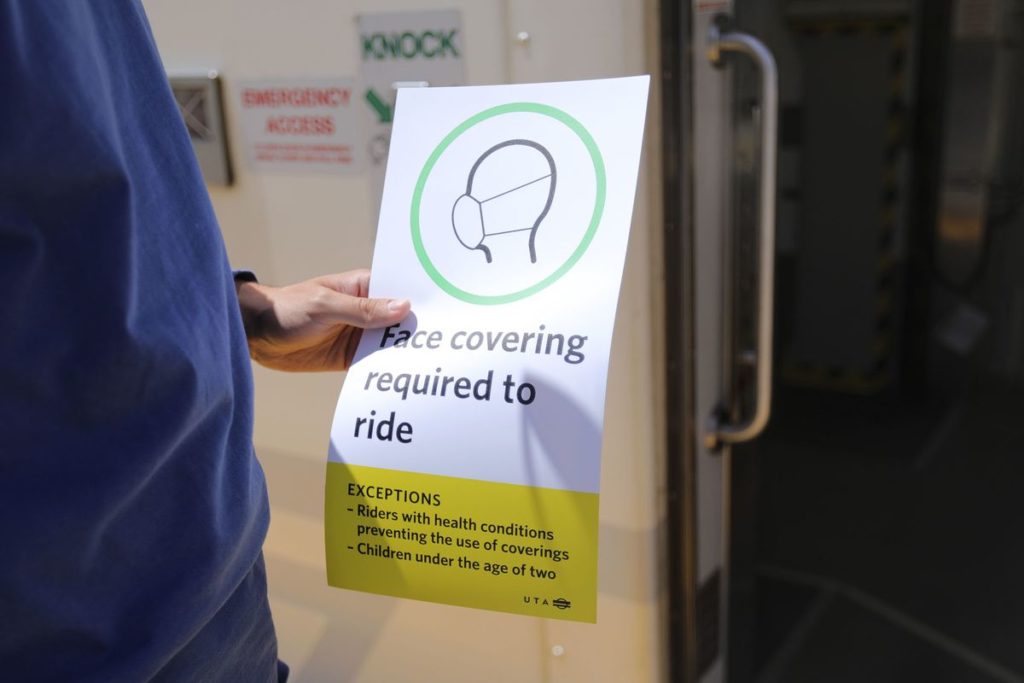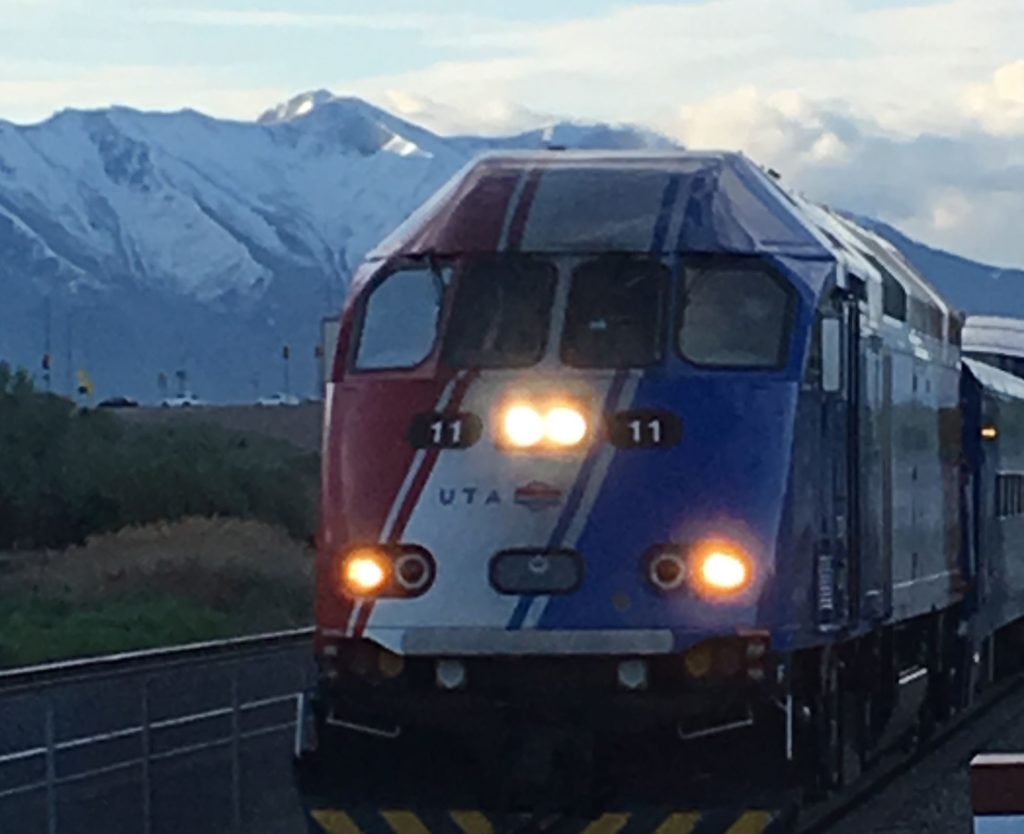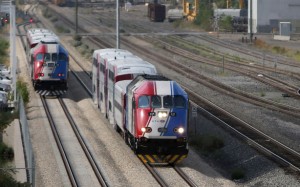(Warning – This blog post is a little too long… kind of like how the year went.)
When I wasn’t driving the train or asleep, the beginning of the new year found me deep in a home renovation project that My Beautiful Wife and I had taken on for one of our sons, while he and his younger brother were deployed overseas.
Impending War
Right off the bat, the year 2020 looked dismal with the January 8th Persian Gulf Crisis.
Our sons were both stationed in the region, when Iran launched missile attacks against two US/Iraqi military bases housing US soldiers, in retaliation for the killing of Soleimani. It looked like we were headed for war, and two of our sons would be right in the middle of it.
As quickly as this threat subsided, more troubling news took it’s place, including the catastrophic wild fires in Australia followed by destructive flooding, President Trump’s Impeachment trial, and the fatal Kobe Bryant helicopter crash. Underlying this unsettled start to the year was brewing the new virus, which soon became a global pandemic.
Life in a Global Pandemic Begins
Declared a “public emergency” by the World Health Organization on January 30, at first everyone was calling it “The Coronavirus”. Coronavirus is a description of the how it looks under a powerful microscope. But Cronam, the Latin word for crown, describes many types of thorn-like crowned viruses, or coronaviruses out there. So on February 11, our global pandemic virus received it’s official name of Covid-19, which is an acronym that stands for coronavirus disease of 2019.
My earliest lasting memory of how Covid-19 personally affected me was seeing the clip of a March 6th news conference where a California health official emphatically tells us all, “Don’t touch your face.” As she then sticks her finger in her mouth to wet it before turning the page, I am thinking, “I have no hope of NOT touching my always itchy face while constantly handling the doors and railings inside the body of the train. So I’m going to die.”
At the time, I developed the strategy of gloving my normally ungloved hands while walking the train. This change in my normal routine really helped. I would then take the gloves off and use hand sanitizer before doing anything else.
The Bad News Increases
During this time, the bad news just kept coming in. On March 3rd, 13 tornadoes tormented Nashville, killing at least 25 people.
The March 9th news of Italy placing itself on a nationwide quarantine to slow the spread of coronavirus, was the same day that the US stock market took a major hit. Not too many days earlier, the Dow Jones had fallen 1000 points in a single day, but now it dropped over 2000 points in a single day. This is now commonly called Black Monday 2020. Three days later the Dow dropped another 2352 points, followed by an almost 3000 point drop three days later. This one holds the record for being the largest single-day point drop ever. So in just one month, the stock market went from an all-time high, through a record breaking plunge, and into a bear market.
It was during this time that the World Health Organization declared the Covid-19 outbreak a pandemic, the NBA suspended its season, President Trump declared Coronavirus a national emergency, and Breonna Taylor was shot and killed by police in Louisville, Kentucky, setting our nation up for an increase in racial tension.
Shaken But Not Stirred
It was the morning of March 18th, just a little after 7:00 am, that I was driving my northbound train full of commuters, bound for work and school, through North Salt Lake City at full speed.
Suddenly one of the controllers on duty at our FrontRunner headquarters called over the radio, “EMERGENCY, EMERGENCY, EMERGENCY. All trains, STOP! STOP! STOP!” Many times I’ve heard ONE of our trains call out their own “EMERGENCY, EMERGENCY, EMERGENCY.” And I’ve heard our controllers call a single train to called to “STOP, STOP, STOP.” But this was the first time in my five years of driving the trains that I’d heard the call for all 10 trains to stop in their tracks at once in this manner.
One by one, in rapid succession, the radio crackled with, ”Train 4 is stopped and set and centered… Train 7, stopped and set and centered…” Set and centered means the brakes are applied and all propulsion is disabled. After all 10 trains called in, the radio went silent.
I knew of only one thing that would bring all 10 trains along our 88 miles of mainline track to a sudden screeching halt all at once. We must have had a major earthquake. Locomotives weigh many times what the railcars do, and they don’t have the “Air-ride” suspension that the passenger cars enjoy. So in my heavy “leaf-spring” suspended locomotive, riding at full speed on some of the roughest stretch of track on our alignment, I didn’t actually feel any of “the earthquake shake” when it happened. But I sure felt the silent and still aftermath.
After making announcements to the passengers about all trains being called to a stop, and that it likely meant we had just experienced a major earthquake, I sat in the cab of the locomotive and listened to the silent radio, while wondering what was going on in the Control Room right now? We had never had a major earthquake since our FrontRunner service began. The official earthquake response plan, available to us as engineers driving the train, is a very short, concise paragraph. Maybe it is too concise. You be the judge.
TOEP – 3 Earthquake
When an earthquake is reported or felt and it is at a magnitude of 5.0 and higher, all trains shall be instructed by UTA FRC: “Emergency, Emergency, Emergency. Earthquake conditions, all train stop.” Note: Trains may be moved the minimum distance required at a speed less than 5 mph to avoid an emergency situation such as unloading off a bridge, under a bridge, off at a grade crossing, near a fire etc.
Even with the little information that I had, none of which had ever been tested in real life, I knew of possible conflicting instructions for our Controllers back at FrontRunner Headquarters. For example, should they follow the building’s earthquake procedures and evacuate the building, gathering at the outside rendezvous point? Or should they stay in the control room to give directions to the ten (now confused) trains, which are in service, but just sitting on the tracks, all full of commuters. Certainly they were scrambling to contact FrontRunner management for directions on how to proceed.
Eventually my train was given authorization to slowly move forward to Woods Cross Station. We were to travel at restricted speed, allowing me to inspect everything ahead of the train that could cause problems, and to be able stop before I got to it.
As I learned later, our major earthquake was a 5.7. The first major quake to hit the Salt Lake Valley since the city was founded back in the mid-1800’s. It’s epicenter was only 8.5 miles from where I was driving my train when we were all called to an emergency stop.
Now all of the bridges, rail switches, and even the rails themselves, needed to be inspected before we could resume normal operations. Of course qualified UTA inspectors had numerous buildings, our light-rail operations, all the rail alignment, and many other things to inspect as well. UTA Light-rail was really messed up, which shut down all of their services completely all day.
We, on the heavy-rail side fared better and things at FrontRunner moved pretty slowly when we finally started to move, but at least we were moving. I proceeded northbound, the remaining 33 miles to Ogden Station at the same slow “Restricted Speed”.
By the time I was headed back southbound toward Salt Lake, there was sufficient track and bridge inspection, which was now happening in earnest, that I was able to proceed at a little faster rate. No where near full speed, but things were starting to pick up.
About six hours after the initial earthquake, and just as we were given authorization to go much closer to full speed, another 4.6 first aftershock brought all our trains to a stand still once again. The first aftershock (also a 4.6) was about an hour after the initial 5.7 quake, while we were still mostly at a stand still.
At the time of this second big aftershock, I was in the process of bringing my, now out of service, train back into our rail yard at our headquarters. Also happening at this time, when the aftershock hit, two large cranes in front of me were lifting one of our passenger railcars in the air to place it back on the track. (That derailed train from the previous day was a whole other story, but not for this blog.) But seeing the precarious position of this elevated passenger car during this 4.6 aftershock was the icing on the cake for me on this very strange day of an even stranger year.
Curfews & Lockdowns
Meanwhile, the impact of the pandemic raged on. Our passenger ridership on the trains were now dropping steadily. As I drove the trains up and down the Wasatch Front, I could see that our trains weren’t the only thing abandoned. Virtually all office buildings, and of course their parking lots, were empty. I know this wasn’t just a Utah thing. On March 24th the US Box Office recorded ZERO revenue for the first time ever.
The only place in public with lines were the grocery stores and building supply stores. I experienced this personally as I stood in both lines, trying to get food to eat and building materials for my son’s house renovation.
The pandemic also impacted our two sons, who were still deployed overseas, but now due to come home. On March 25th the military put a 60 day halt to overseas troop travel. Now our sons wouldn’t be coming home for months.
In late March, UTA management made serious cuts to our transit service. Ridership was now just a small fraction of normal. Our now shorter trains and less frequent service was clearly still adequate for the few “Essential Workers” still traveling up and down the Wasatch Front on public transit.
On March 26th the Utah Attorney General’s office issued an “Exemption from Travel Restrictions” for essential workers, like us train engineers, so we could travel to and from our work assignments beyond the now designated curfew hours.
Things continued to look and feel more and more like an eerie sci-fi movie. The streets and office buildings were abandoned. The very few passengers actually riding the trains showed stress as they avoided each other, and anything else that might give them the virus. I felt it strange that I was asked to carry official papers authorizing me to be out in public. All the news and other media constantly reported doom and gloom. By now most citizens were asked to stay locked down in their own homes, “so that by working together we could flatten the curve of new infections”. The threat of overwhelming hospitals seemed inevitable based on the astronomical projections of the experts.
Masks
Early on, I clearly remember watching with interest, advice from our national infection and medical experts that we should leave all “good masks”, such as the suddenly rare N95’s to the medical professionals. We were also told that any other “lessor masks”, such as cloth coverings, were not effective and that the key to survival for the general public was to properly wash our hands and to NOT TOUCH OUR FACE.

Well, on April 3rd the mask focus shifted, when the CDC recommended that all citizens consider wearing cloth or some kind of fabric face covering. Over time, this “recommendation” became more and more mandatory.
I was now haunted, while trying to wear a mask all day, by the memory of my 9-year-old self failing in my upside down escape attempt from a mummy sleeping bag. Now less impressed by some magician act I’d seen on TV, I’d given up near suffocation as a hobby way back then. But now with something as simple cloth mask on my face all day, that childhood experience was back to haunt me… and make me gag. It’s surprising how much more air is required to pass through that cloth when I’m briskly walking through the train, compared to those quietly sitting and staring out the window.
Incidentally, all those N-95 masks that disappeared at the beginning of the pandemic, never came back. Home renovators, like myself, along with all craftsmen who could once protect their lungs from construction debris while on the job have only a cloth mask that doesn’t filter what shouldn’t end up in the lungs.
Protests & Riots
Well the summer really heated up, starting with George Floyd’s May 25th brutal demise. The ensuing police protests that then became riots spread across the country faster than the news of the “Murder Hornets” invading.
A May 30th police protest in Salt Lake City turned into a full fledged riot that included a police car flipped upside down and burned, with the approval of a cheering crowd. I was amazed this was happening right here in little ole Salt Lake City, and not just in big cities like Chicago and Seattle.
More protests along the Wasatch Front erupted, including an attack on the Salt Lake County District Attorney’s office, and a broad daylight shooting during a protest in down town Provo.
As I continued to drive my train up and down the Wasatch Front, as an essential worker, marveling at the strangeness of the year, I never had time to wonder what would happen next before it was happening.
Wildfires
Did those catastrophic wildfires from Australia spread across the ocean, like the Covid-19, and hit our West Coast? The California wildfires were much worse than in years past. I didn’t know that was possible, or even that there was anything left in California to burn. But adding the smoke drift from their 10,000 fires to our own 1,500 wildfires, filled Utah’s August air. This added another layer to the feeling of doom and gloom.
With Hurricane Force
I was on my normal work assignment. It was September 8th, a Tuesday morning, and I was driving my early morning train northbound, through North Salt Lake, toward Woods Cross Station.
This was virtually the same place and circumstances I was in a few months earlier for our big earthquake. This was also the same stretch where a few years before that, during a blinding snowstorm, I had hit a pickup truck that had made a wrong turn onto my tracks. Thankfully I had narrowly missed wiping out the escaping family as I destroyed their family ride.
What would this “Twilight Zone” stretch of track do to me this time? I quickly found out. The windy morning suddenly became violent. In front of my speeding train, a large tree was blown down, laying across my tracks. The trunk, larger in girth than a power pole, exploded into splinters as I blasted through.
Up here in the Rocky Mountains, almost a thousand miles from any sea coast, we were now experiencing hurricane conditions with 100 mph winds in some areas. The winds flipped 45 semi-trucks, knocked out power to nearly 200,000 residence, and knocked down thousands of trees. The State was already operating in a state of emergency because of the pandemic. But now the Governor declared second state of emergency as a result of the storm damage. For many thousands, power was out for days. Downed trees blocked roads and damaged building and homes. Our “pandemic crippled cities” almost became “hurricane paralyzed”.
Needless to say, driving the train on the hurricane morning of September 8th looked a lot like driving it on earthquake morning of March 18th. “Hurricane Morning” also became a long day of delays and uncertainty.
Pandemic Fatigue
As we finished out the long crazy year (and yes, it was also a crazy long year), we continued to endure the on-going pandemic fatigue, cancelled travel and vacation plans, and muted Halloween, Thanksgiving, and Christmas gatherings.
Hope
But ever so slowly, the ridership is coming back. The office buildings and their parking lots are still about as empty as ever, but people seem to be moving about for other reasons.
We as a people, and individually, have lost much during this past year. For many, there are loved ones no longer with us. For everyone, our human interactions and associations have changed. For some the year ended with loneliness, fear, and despair. But there is hope too. The experience of this past year helps make us better… as a people and as individuals… if we let it.
Like everyone else, I didn’t enjoy 2020 very much. With the theme of losing loved ones, starting very early in the year for our family, and continuing to an ugly exclamation mark on the last day of the year, I am very glad to see it go.
But much good has happened too. My two sons, who were deployed, are back and enjoying close associations with their other seven siblings, along with My Beautiful Wife and I. We are all working, together and individually, to make this world a better place for everyone.
I don’t know what 2021 will bring, but the one thing 2020 has taught me, is ironically what it tried so hard to take away from all of us. “The most important thing to every human being on this planet is our positive interactions with each other.”

 ame
ame